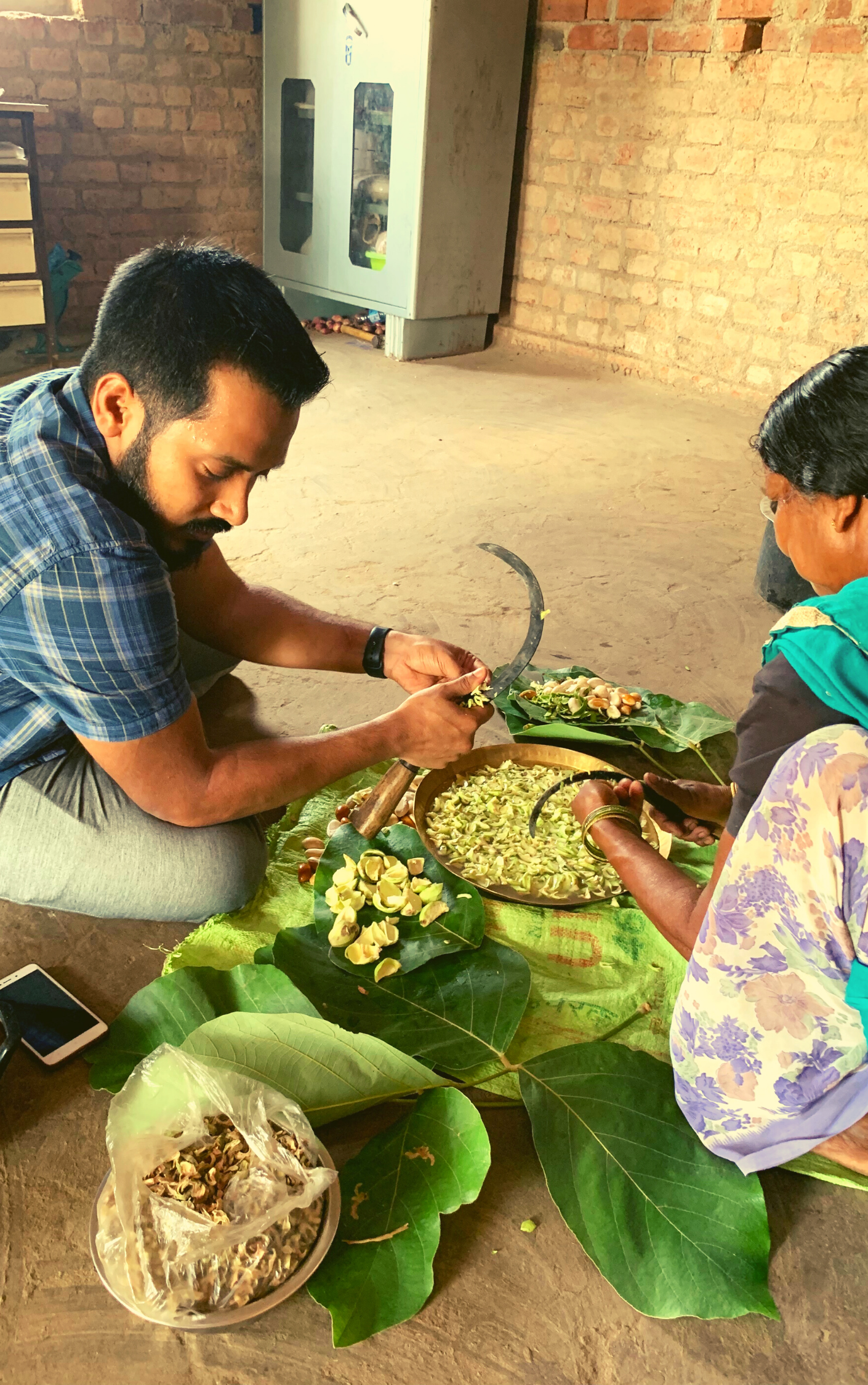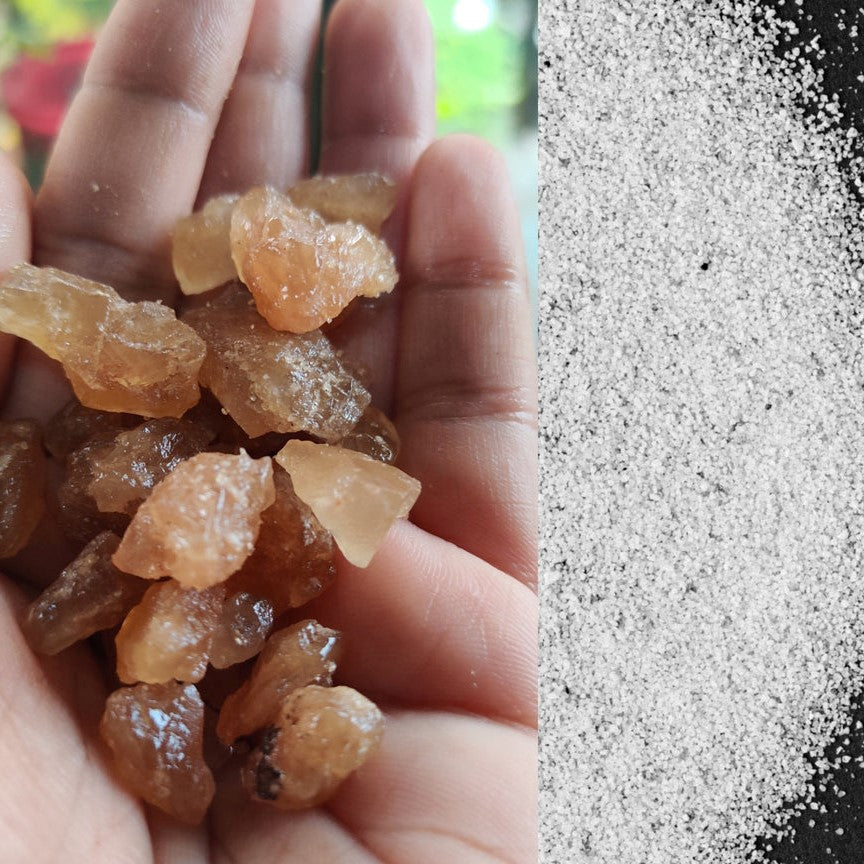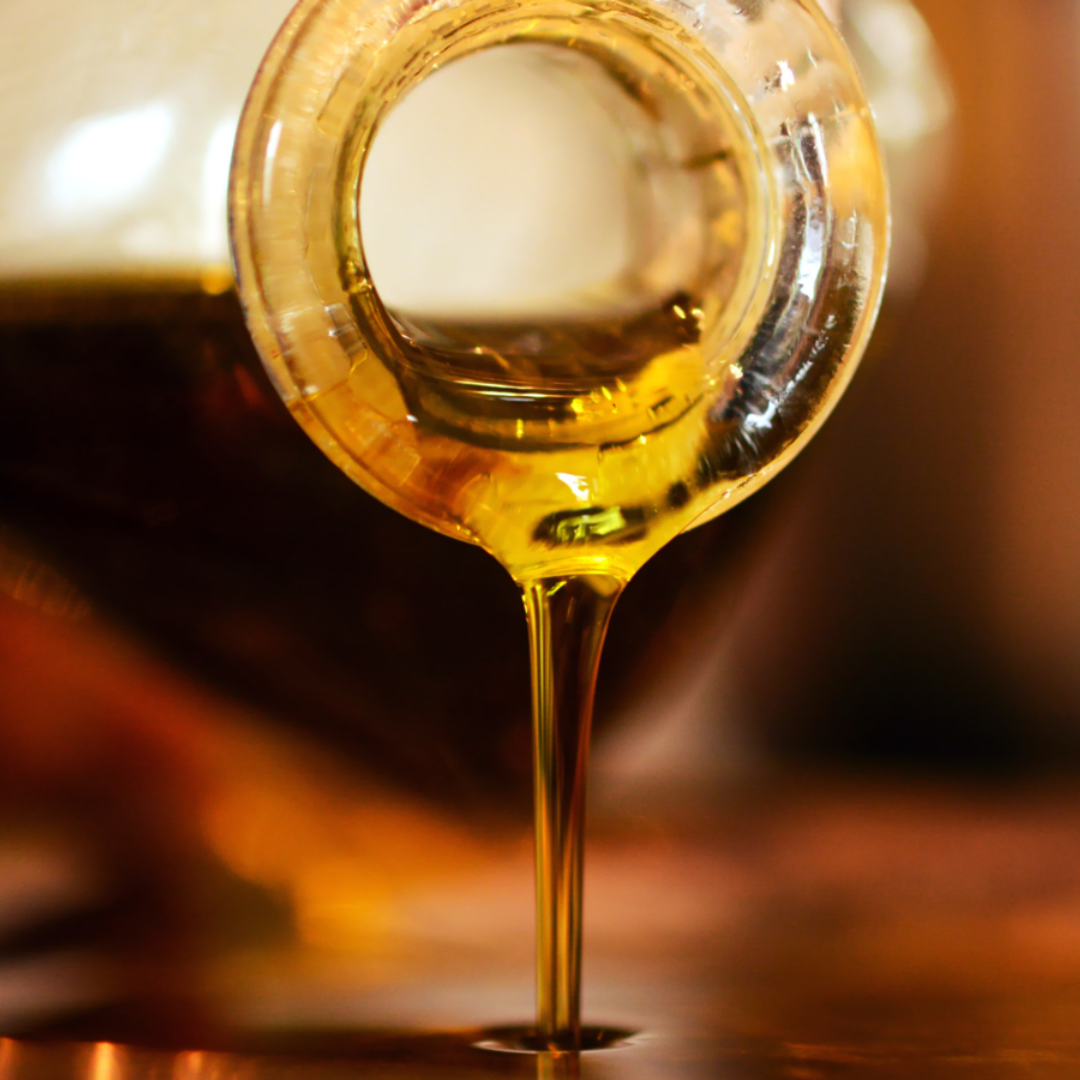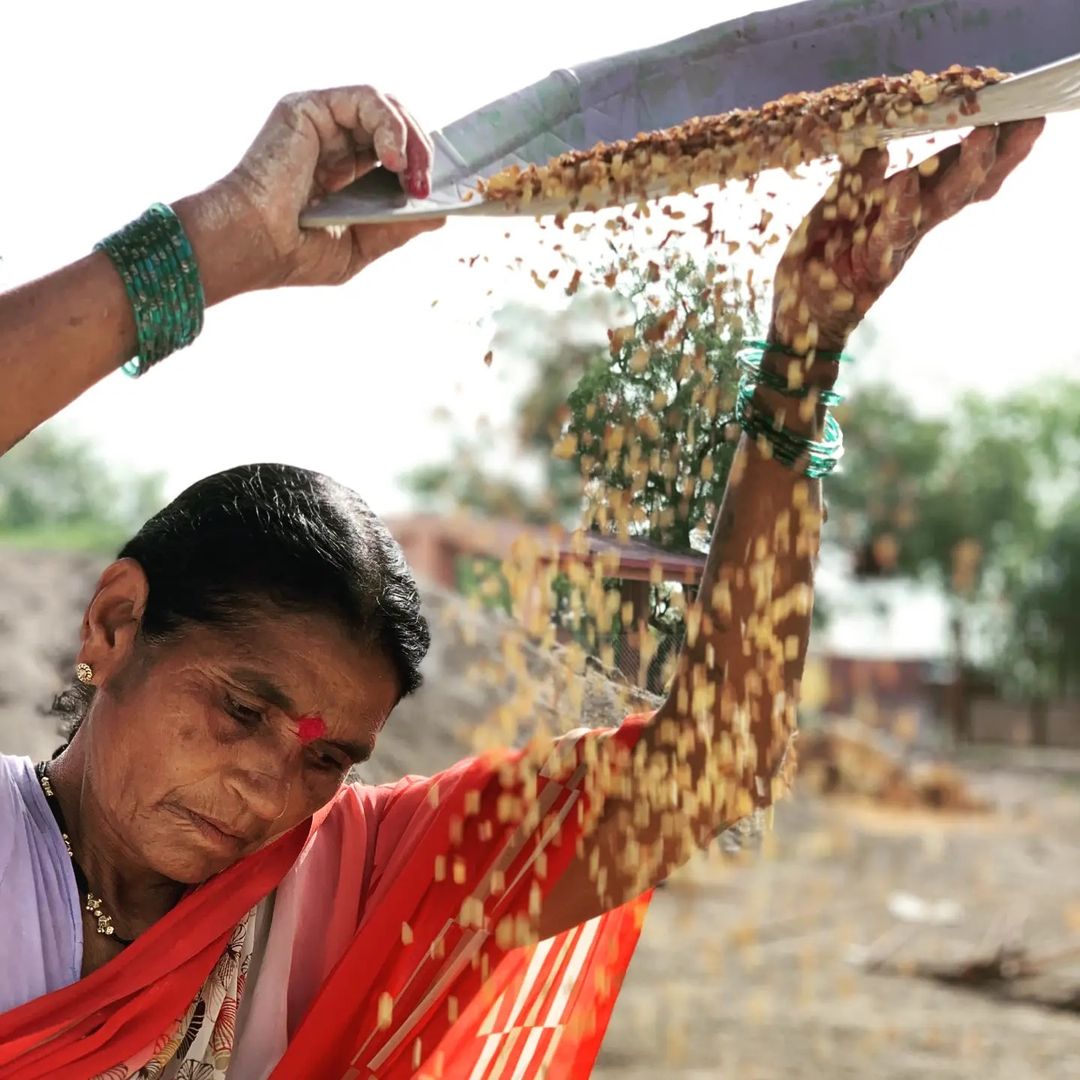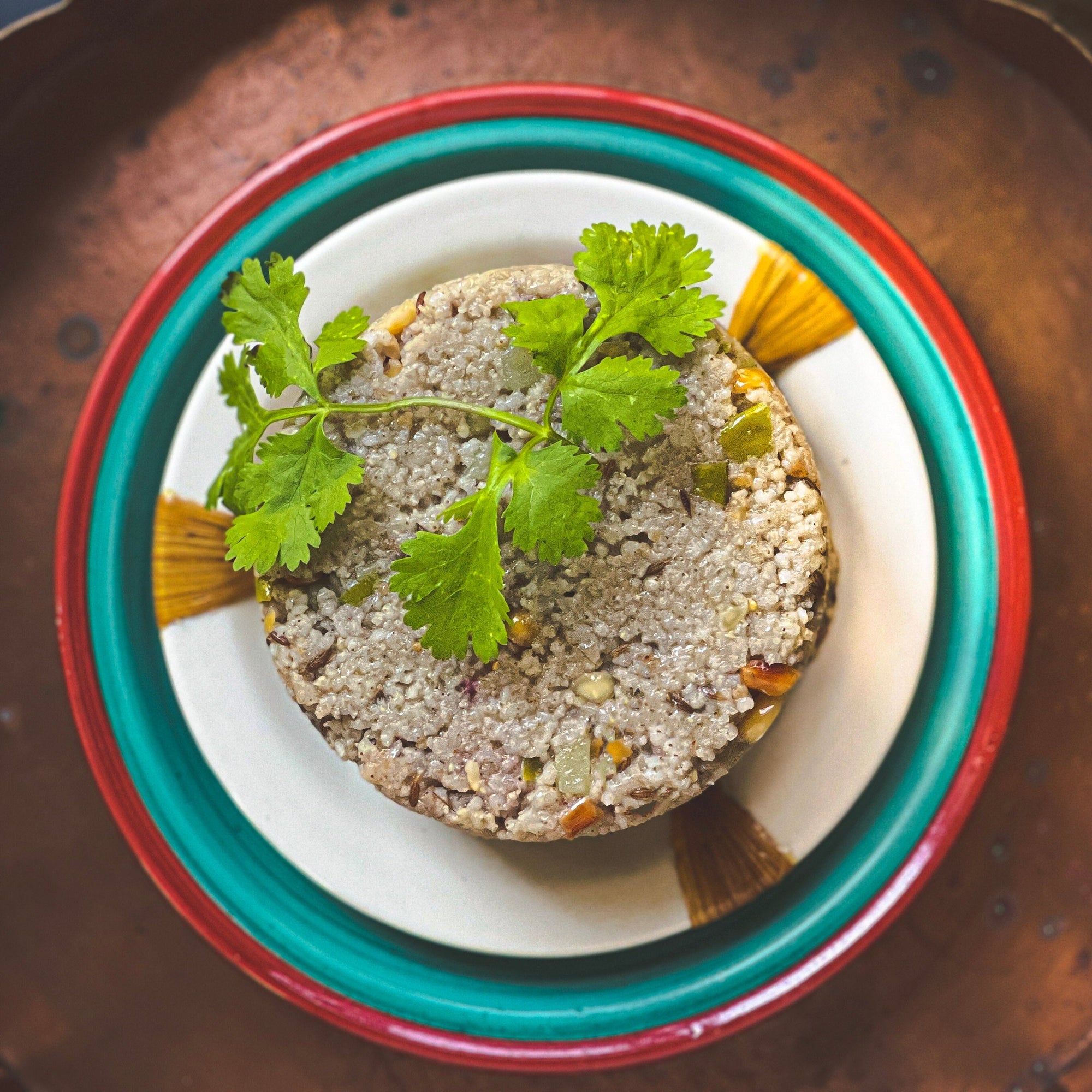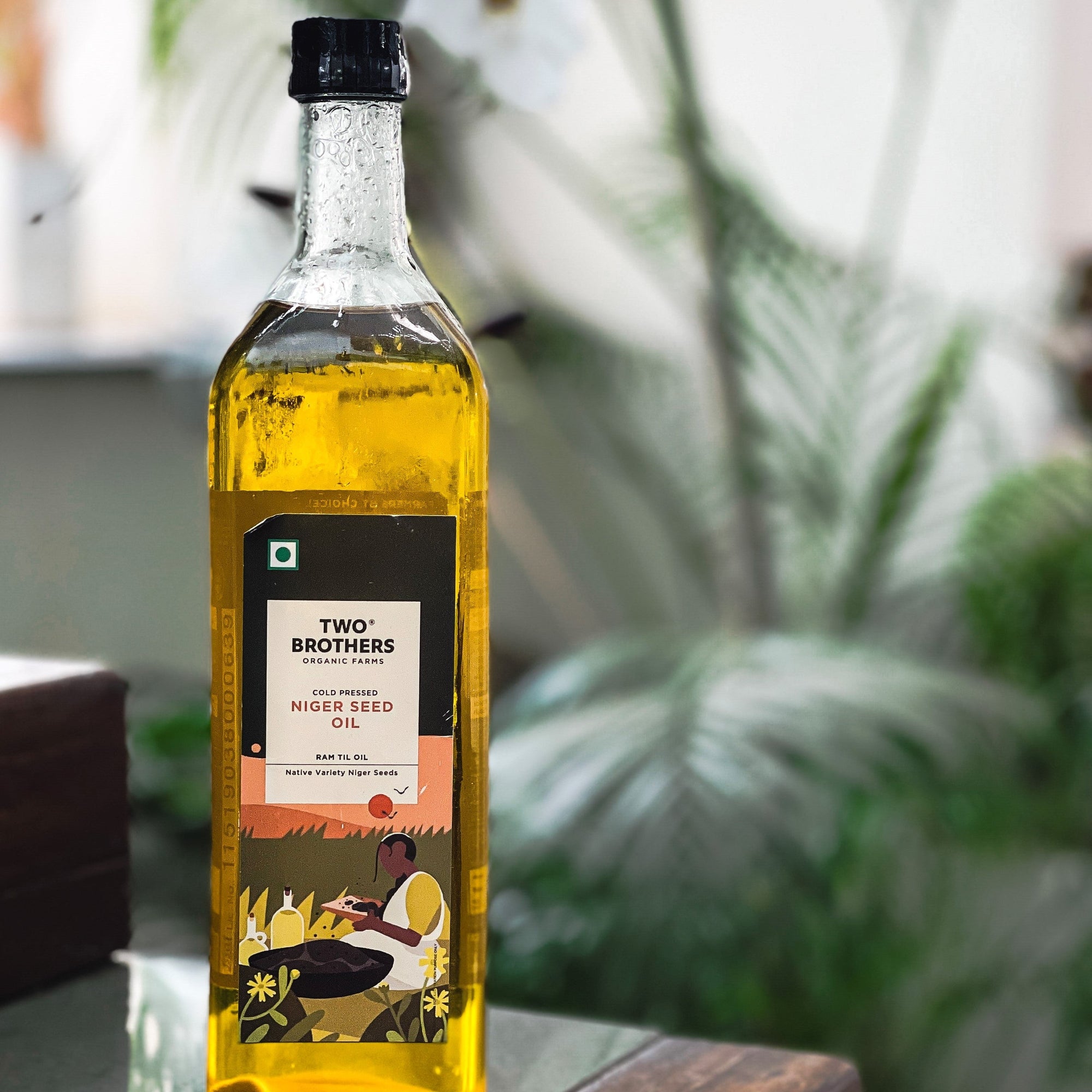
Who does not know of the amazingly talented and creative Chef Thomas Zaccharias (@cheftzac as he is famously known on Instagram) of @thebombaycanteen whose passion for 'Desi, indigenous local foods' has brought regional cuisine and long lost traditional recipes in its original and many inspired avatars to not just the ultra modern food scene of Mumbai but also many other parts of the world!
We caught up with Chef Thomas (in the middle of what looked like a really busy day for him and his crew) for an interview - Not just did he take the time out to answer all our questions but he also shared tremendous insights from his travel & food experiences with genuine fervor and enthusiasm. Here's wishing for this food genius and his equally passionate team heaps and bundles of power and success in all their future endeavors!
Chef Thomas Zaccharias was named Chef of the Year at Conde Nast Traveller India magazine’s Top Restaurant Awards in 2018 and executive chef at one of India's best restaurants - The Bombay Canteen, Mumbai.

For most of us foodies online Chef Thomas Zachharias requires no introduction. But for all those who are new to your story – let’s start off with understanding how did the thought of starting a concept restaurant in the hub of Mumbai come to you where you work bravely with desi indigenous foods and what’s been your source of inspiration?
Sure. I grew up in Kerala till I was about 18 years old. My inspiration was my grand-mother. My grand mother was an obsessive cook. Besides cooking for us, she would also experiment on her own and come up with her own recipes. And something that I realized only later on is that she only cooked Desi, local, seasonal and indigenous – this is about 25-30 years ago when people cooked only with what was naturally available in the place that they lived and almost, always foods that were in season. That set up my upbringing.
I have had some amazing food growing up. There is no concept of bad food in my consciousness from that time.
So, that’s how the inclination towards food and cooking came from but still, I never realized until later on that I could make a profession out of it. Only in my mid-teens is when I knew that there exists a profession as a ‘Chef’ and as soon as I knew that, I was stubborn to be pursuing it. I went to Manipal for my graduation studies in Hotel management and later on went to the Culinary Institute of America New York for further studies.
In the US we were using very good quality fresh produce to cook with. It was very exciting for me as the quality and freshness of foods was very obvious. I also worked in New York for a while for a French seafood restaurant. Subsequently decided that I wanted to build my career in India. So I moved back to India in 2010. Here, I started working for a European Restaurant called Olive – I started off in Bangalore then moved to Mumbai and headed the Olive kitchen in Mumbai for three and a half years.
And all this while I was cooking Mediterranean, European food, using imported ingredients – imported fish, imported meat, western vegetables like broccoli, asparagus, yellow squash and zucchini and grains like quinoa. A big reason for this is because culinary institutes in India and abroad are setup in a way that you are brain washed to be cooking western food – it is taught to you to be the pinnacle of all cuisine and you almost move away from your roots and forget where you come from.
So anyway, while I was at Olive I took a 4 months sabbatical from cooking to travel the whole of Europe because I wanted to really know what they cook in those countries because all I knew to cook was what they taught us in culinary school or what I knew from my restaurant experience; but I wanted to go to the source of it all and taste for myself. That was an incredible trip - four months long, spread across specific towns and cities – but my biggest realization from that trip was how little I had explored my travels through India. So I made a promise to myself at the end of that trip that the next chance I get, I am going to travel through India to explore Indian cuisine.
It was almost an epiphany that I had on that trip. Even after my return from the Europe trip, I couldn’t take my mind off the fact that I had spent 6-7 years of my career until then only looking at western food and that I had completely ignored Indian local food. And it was around the same time that business partners were looking for a head chef for the Bombay Canteen. The opportunity had come to me but until then I had zero experience cooking Indian Food.
So as soon as I got on the job, I went onto travel through India for about 2 months. I went across 18 towns and cities through 15 states in India. That was an eye-opening experience for me because I was blown away by what I saw - ingredients, vegetables, recipes, techniques, tradition - all of which I had never seen before! I was excited and really intrigued. Also, I knew by then that none of this was making its way into mainstream restaurants across the country. That is when I had my second big epiphany where I realized that there was so much potential to showcase our native food and that’s how the inspiration for the Bombay Canteen came along.
And ever since I have been taking the time to explore some part of our country that I haven’t really explored or visited. I have now been to 24 Indian states and done in-depth explorations of cuisines from most of those states. And every single time I do this the experience has been unbelievable. It is truly so humbling to realize every time that how little we know. But its exciting as a chef because you are getting so much fodder to play around with creatively as well. In the process of creating the menu for the Bombay Canteen, we were wanting to use local seasonal produce.
A year down the line I had imposed a rule on myself that I will not use anything imported and that I will not use anything that is not indigenous in our kitchen. I knew by doing this I would also be forcing myself to think creatively for the Menu.
For eg, we do not really have traditional salad greens in India. Chinese lettuce and the likes are not indigenous. We were forced to look out for local greens for salads and discovered that young amaranth leaves made for a great salad. Lal (red) Amaranth leaves also worked really well! Just few months ago I also discovered Phodshi which is a monsoon green, that also makes for a great salad-green. Again, I would not have ever discovered these had I been complacent to be using Iceberg, Romaine or Arugula in our salads! Also we have been trying to use more and more local and indigenous foods on our menu. Again this winter, we are including 25 different new vegetables that are in season, which for us is thoroughly exciting. The idea is to get deeper into regional cuisine.
How do you view the farm-to-table concept? Do you think it’s a viable, workable model that even local small restaurants could adopt or do you think it is something that only concept cafes and boutique restaurants that attract millennials could try?
Firstly, in my view we should define what we mean by farm-to-table. Every restaurant these days seem to be thinking of itself as a farm-to-table restaurant in some sense.
Farm-to-table is one of those phrases that is misconstrued, or not understood clearly or has different definitions for different people – just like the word ‘healthy’ for example. For me farm-to-table means that you know the source of your food, you should know where the food comes from. I don’t think its necessary that you own the farm; but you need to know what practices are being followed on that farm, whether these are sustainable and if it takes care of every part of the ecosystem.
In that sense there is a lot of potential in moving towards farm-to-table but there is very, very slow progression. Also, one of the main reasons why the farm-to-table model generally flawed is because of the way it is run not just in India but also all over the world - with the chef of the restaurant deciding the menu, based on which the list of ingredients that needs to be sourced is worked out and then the farmer is expected to grow those vegetables and supply it to the restaurant!
This is a flawed approach because it does not take into account what is suitable to be grown on that farm, whether its seasonal - crop rotation and none of the other factors are considered and hence not in sync with the idea of sustainability.
The ideal way to do it would mean that the farmer should follow sustainable practices for instance keep away from inorganic inputs on the farm, practice multi cropping or crop rotation, just focusing more on enriching the soil and practicing only what will work for the soil and not function against it; and then the farmer ideally should inform the chef or the restaurant of what is in season and what produce is expected from his farm for the coming season and the chef then works out a menu that respects this and works with ‘what is available’ which is very important. That is exactly what we attempted to do with the Wild Food Festival, where we told OOO Farms that we do not want to disturb the system – you tell us what is available and what we can use; and we at the Bombay Canteen will create a menu around it.

Do you think Chefs could have an important role to play in this movement? Talking of the Wild Food Festival, that was when we could see the names of various desi vegetables, tubers and other seasonal greens trending online – and these were names of foods that people in the cities had not heard of until the festival happened. A lot of farmers, especially conventional farmers who still constitute the major share of farmers who grow food in this country have stopped growing many of these foods because there is no demand, because people don’t buy them anymore. A lot of our native foods have gone extinct and there are so many more that stand at the brink of vanishing forever!
Yes absolutely. This is something that I have just realized only in the last 3-4 years. Its really amazing to see just how much influence chefs are starting to have these days in the way that people eat, mainly in the urban cities. And this could be happening more through social media rather than people coming to a restaurant. So definitely there can be impact brought about with the methods that a chef is trying to push. And this is really encouraging; Some 20 years ago I did not even know that a profession as a chef even existed and a lot of people that I knew only thought of it as a disappointing one to take up.
Today chefs have become the new rock-stars of the world and they get a lot more respect than they did a long time ago. In the age of the new age celebrity chefs, people have started to queue-in to listen to what chefs have to say and chefs have become very influential in the way that food trends are shaped. So yes, responsibility is definitely there – but then again, I will use the word responsibility very consciously in the sense that we look at what is possible and use our means to bring about some positive change or the other.
With the Wild Food Festival which was such a hit, you managed to involve the tribal community very meaningfully – people could directly interact with them at the festival and a first hand exchange of information took place. What are your learnings from the experience and some of the challenges you faced?
I have learnt a lot. Firstly, a lot of these ingredients are highly seasonal. Which means that we had to work with them and create dishes out of them very quickly. Usually we are used to a longer lead time and there is not much of pressure to create dishes around certain ingredients. Secondly, a lot of these vegetables were new to us. We had to figure out how to cook them and work with them without a recipe book or handbook explaining how to use them. So this was a challenge but that was what made it more exciting – personally I love coming across foods that I haven’t worked with and especially when it is grown just about 100 kms from here, that makes it all the more special.
OOO farms did an excellent job with the logistics and in making these available to us in time. Not all ingredients were available at all times but again, that’s actually the point. As said earlier we wanted to work with ‘what’s available’ and not do it the other way round. What was really exciting based on the feedback OOO farms gave us was that in the two months of working with them, the tribal community had achieved a renewed sense of purpose and had changed their minds about cutting down their forests for rice or paddy or for modern agriculture. The feedback we received from people who came to the restaurant was also very special. We had made these small cards with info about the vegetable. We had displayed the raw vegetable for people to understand, touch and see. All in all, I was really happy with what came out of this exercise and I am really excited to continue this relationship with them (OOO farms).

The pomegranate festival was an initiative that you were involved in. Work of this nature is truly inspirational for us at TBOF, because we too have joined hands with mainstream schools and work very closely with the Bishops School (Pune) and the Polymath School (Mumbai) to structure and conduct programs that introduce children to the basics of organic farming and also to give them a first hand experience into growing food on their own. What has been your experience with reaching out to schools and working with children through the pomegranate festival?
Firstly, being very honest, I do not see a lot many chefs from my generation doing anything much to promote local indigenous and seasonal produce. And it is in fact surprising because considering the kind of response we got, I would have assumed that others would pick up from there and make use of the steam. Every time someone asks me about the food trends that I foresee, this is exactly what I say but things just don’t seem to change.
I guess the other way to approach it is by reaching out and educating the next generation and to get them excited and inspired. So, I was very excited to be a part of this Pomegranate festival. They gave me a clean slate and said I was free to do anything around sustainability. One approach to do it, I thought would be to ask the children to go back home and cook a dish with their family. Our modern generation - not just my generation but even my parents’ generation - people have just stopped cooking.
I wanted the children to go back home and cook something with their parents and grandparents using at least one indigenous vegetable. The implications of this was that the family would have to cook together, they would have to do a traditional recipe which was also one of the criterion. Vegetables these days meant aalu, gobi or capsicum. They were not allowed to use these staple vegetables. We reached out to about 8 schools, I went and gave a presentation to each of the schools to explain the project and get them excited about the idea, this included 40-50 students from each school over the course of 3-4 months.
In fact I was also talking to OOO farms about the Bombay Canteen being very happy to buy produce coming out of the little garden at Polymath School.

It is very exciting to see a lot of the dishes you highlight at the Bombay Canteen inspired by regional Indian cuisines. How is it that you manage to capture the ethos of a particular region or community and translate that through food also working your way around the challenge of keeping it ultra-modern and exciting for the modern-day consumer?
We are able to do that through our travels. It has a very important part to play. My Chef-on-the-road Trip to Odisha was done in-depth - I explored a small part of the cuisine, but whatever we did was done in great detail. We got someone from Odisha to come and teach us how the dishes were made - to see it all again, so that we were able to translate that through our attempts at the restaurant.
Some of these were traditionally done recipes and some were inspired versions. The way we manage to capture the real essence is through the stories we tell. We train and involve the wait-staff at the restaurant to narrate most of the info that we pick up during our travels to people who come to eat at the restaurant. And we always keep the flavors intact, even if it is an inspired dish, we make sure the essence and flavors remain honest and true to the original inspiration.
Have there been instances when some of these native foods you bring to your menu have failed to attract takers?
Yes. That happens. Inevitably that will happen, which is absolutely fine. Food is very subjective.If a dish is liked by 70-80% of our customers and hated by say 20%, we are okay with that kind of statistic. Sometimes a dish doesn’t work at all or maybe comes across as too adventurous - but then at times it is important to just put it on the menu to make a point and to send out a message.
You have a huge repertoire of desi indigenous foods, especially vegetables that you work with. As farmers, we are curious to know a few favorites!
Oh wow! That’s going to be tough. I’ll pick a few from each season. My favorite season for desi vegetables is winter. Oh wait, maybe now after the Monsoon Wild Food Festival that might have changed!
But nonetheless, Winters are super exciting and I really like working with Hara Chana, Chayote or chao chao and I love green garlic (hara lasoon) as well. During the summers, using various parts of the Pumpkin (Kaddu) – we did Baklavas using Pumpkin flower, pumpkin stem, the leaves, the skin, the flesh and the seeds, all five in one dish! I also like Bimbli in the summers. In the Monsoons, Umber which is a wild fig, Garbandhi which is a wild leaf. I absolutely love how the Shevla looks and am very happy with what we put out using the shevla - shevla tikkis with saakhar murabba the last time! Podchi as well. Some perennial ingredients as well like Moras bhajis, that discovery changed a lot for me! I can keep going on and on.
Shop Now :

